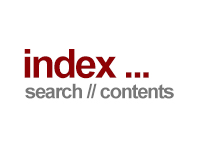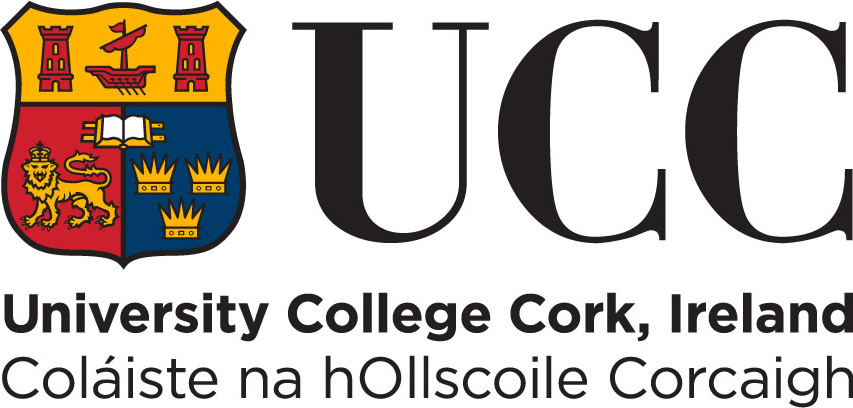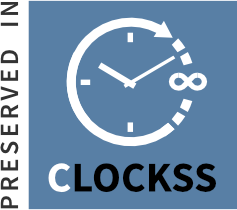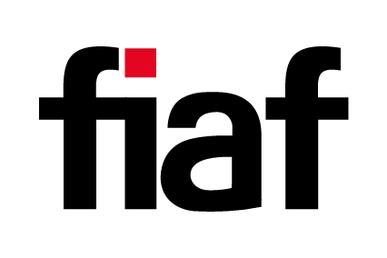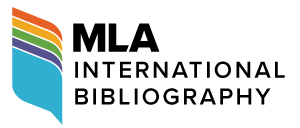The International Documentary Film Festival Amsterdam (IDFA) 2019
Dasa Raimanova
The world’s largest international documentary film festival is held in Amsterdam annually. One of its primary ambitions is to provide an outstanding platform for the amplification of diverse voices and to change the film industry from within. As such, the festival ensures that at least fifty percent of the films and new media projects are by female creators; the programming features a large number of films from under-represented regions and the competition juries are made up of at least fifty percent women, with jurors drawn from all over the world. These aims are truly visible in the vibrant selection presented in numerous categories such as, Frontlight; Luminous; IDFA Focus; IDFA DocLab; IDFA on Stage; Paradocs; Masters; and Best of Fests. In the section of Retrospective & Top 10,the festival invites a guest of honour. In 2019, the guest of honour was Patricio Guzmán, the Chilean filmmaker renowned for films such as The Battle of Chile (1979) and Salvador Allende (2004).
In addition to showcasing works by masters and up-and-coming filmmakers, IDFA has developed several professional activities and fora which contribute to the development of filmmakers and their filmic projects. At the cofinancing and coproduction market IDFA Forum filmmakers and producers pitch their plans to financiers; at Docs for Sale new documentaries are on offer to programmers and distributors; the IDFA Bertha Fund supports filmmakers and documentary projects in developing countries; and the IDFAcademy offers an international training program for up-and-coming talent.
Despite its grand scale, IDFA feels incredibly welcoming and cosy. Events take place in various venues scattered through the city, from arts and cultural institutions and cafes, to cinemas and the Amsterdam Centraal Station. Among the most notable venues are the iconic Eye Film Museum, situated on the waterfront, accessible by ferry, and one of the most beautiful cinemas in the world, Pathé Tuschinski. Originally the Theater Tuschinski, it has a spectacular interior and exterior combining the design styles of the Amsterdam School, Art Nouveau and Art Deco. From the vast and engaging festival programme scheduled over twelve days (20 November–1 December), this report will focus on three documentaries, each representing different festival sections, and one immersive experience, the winner of the digital storytelling award at DocLab.
They Call Me Babu (Ze noemen me Baboe, Sandra Beerends, 2019), showcased as part of the Dutch Documentary Competition, is a black and white film meticulously crafted out of one hundred and twenty amateur and professional pieces of archival footage. Through a poetic narration, the film tells the story of Javanese Alima, who worked as a babu or nanny for a Dutch family in the former Dutch East Indies. According to the producer, Pieter van Huijstee, many Dutch families will remember with fondness their nannies, not by their names but simply as babu. Director Sandra Beerends interviewed twenty-four former babus to create a unique narration of Alima, “whose story coincides with the turbulent period between 1939 and 1949, that witnessed WWII, the Japanese occupation of the former Dutch East Indies and the Indonesian stride for independence from the Netherlands” (Lovegrove). The film tells the story of Alima, who travelled to the Netherlands to work for a Dutch family as a nanny to their baby. Upon her return to her home village, she lives through Japanese occupation and Indonesia’s battle for independence. She finds herself torn between the fight for independence and her loyalty to her Dutch employers, while also yearning for the emancipation she had gained through her work in the Netherlands. The director depicts the complexities of colonisation and allows us to experience an empowering story of a woman breaking free from social restriction.
Within the Frontlight section, which focused on stories left untold by mainstream media, Chasing Yehoshua (Shay Fogelman, 2019) documents an investigative journey to find Yehoshua Elitzur, a radical West Bank settler who fled Israel after being convicted of shooting a Palestinian taxi driver to death. Five years later, the killer is still missing, but nobody in Israel appears to be working on the case anymore. Haaretz journalist Shay Fogelman makes it his personal mission to find the wanted man. Taking place over eight years, the film becomes a deeply engaging psychological portrait of Yehoshua Elitzur. Bit by bit, and often through the use of dubious strategies, surprising and unsettling elements about the Yehoshua Elitzur’s German and strict Catholic upbringing emerge. Some of the tactics used by the journalist to extract information are deeply concerning and one feels lost in questions of morality. The openness of the film in relation to these practices allows us to question journalistic methods, while simultaneously encouraging the feeling that we are part of the mission to bring closure to the Palestinian family who lost their loved one. With his film, Shay Fogelman exposes and criticises the Israeli government in their handling of this affair and points out the issues where deadly violence can be lurking behind corner and can remain unpunished.
Investigative journalism is continued in an observational documentary, Collective (Colectiv, Alexander Nanau, 2019), presented as part of the Best of Fests programme, which focused on striking documentary films from the international festival circuit. Collective details the aftermath of one of the worst disasters in recent Romanian history. On 30 October 2015, a serious fire broke out at the Colectiv nightclub in Bucharest. Due to lack of fire exits and inadequate fire safety measures, twenty-seven people were killed and 180 injured. A further thirty-seven of the injured later died of bacterial infections in local hospitals. A number of key figures expose the truth behind these scandalous deaths: namely, that the use of diluted disinfectants provided to 350 hospitals and the corrupt healthcare system in a dysfunctional state led to the unnecessary deaths of the victims of the fire. Despite powerful state propaganda, the health minister resigned and was replaced by Vlad Voiculescu, a former activist for patients’ rights who has to endure various intrigues and obstacles. The action unfolds before our eyes like a thriller. Director Alexander Nanau keeps away from sensationalism, but provides a nuanced and detailed understanding of how corruption affected not only the victims and their families, but also the entire country. In fact, it makes us understand that widespread corruption kills far more people than any other catastrophe in Romania.
Remaining in the hospital environment but bringing it to a personal level takes us to a very moving immersive narrative, The Waiting Room VR (Victoria Mapplebeck, 2019), the winner of IDFA DocLab Award for Digital Storytelling. In this autobiographical work we go through the visceral experience of the journey of a patient diagnosed with breast cancer. Through multilayered soundscapes—stitched-together snippets of voicemails, advice, doctor visits, discussions with friends, family and her young son—Mappleback tells the story of negotiating daily decisions and fears, giving shape to the world that surrounds her as it is transformed by her diagnosis: an experience that is fundamentally solitary and yet inevitably social. The director does not place us in the shoes of a patient, but rather allows us to experience her journey as an intimate fly-on-the-wall observer. The soundscape amplifies her relationship structures. Her son’s voice comes from the left side; their exchanges about cancer, motherhood and having a parent who might die are especially moving. The voice of her oncologist is heard from above, a God-like interjection, reflecting his role as a pivotal deciding factor in her life. Her rhythmic breathing during her scan allows us to focus on the severity of the situation and ultimately, brings us face-to-face with our own fears. This virtual reality experience generates the feeling that, despite all medical advances, we are still faced with the unknown.
In conclusion, IDFA 2019 offered a balanced and thought-provoking view of the contemporary documentary landscape: from the political to personal, from masters to newcomers, from traditional storytelling through exploration of the filmic form to immersive narratives championing new and exciting narrative forms. Apart from witnessing many excellent works, IDFA is also a vibrant, creative hub for filmmakers, producers, financiers, and documentary lovers, coming from all around the world to meet by the canals of Amsterdam. Writing this report in the midst of the Covid-19 global pandemic, where one film festival after another is cancelled, I am prompted to appreciate the moments when people meet in such environments to experience a film, exhibition, pitch or a talk together, able to exchange their thoughts, become inspired and foster new relationships and communities. These are truly irreplaceable elements of film festivals and impossible to achieve online. This crisis forces us to appreciate the value of a shared cinematic experience!
References
1. The Battle of Chile. Directed by Patricio Guzmán, Atacama Productions, 1979.
2. Chasing Yehoshua. Directed by Shay Fogelman, Norma Productions Ltd, 2019.
3. Collective [Colectiv].Directed by Alexander Nanau, Nanau Production, 2019.
4. Lovegrove, Sofia. “They Call Me Babu: Giving a Voice to Untold Stories.” DutchCulture, 17 Oct. 2019, dutchculture.nl/en/news/they-call-me-babu-documentary.
5. Salvador Allende. Directed by Patricio Guzmán, JBA Production, 2004.
6. They Call Me Babu [Ze noemen me Baboe].Directed by Sandra Beerends, Pieter van Huystee Film, 2019.
7. The Waiting Room VR. Created by Victoria Mapplebeck, East City Films Ltd, 2019.
Suggested Citation
Raimanova, Dasa. “The International Documentary Film Festival Amsterdam (IDFA) 2019.” Festival report. Alphaville: Journal of Film and Screen Media, no. 19, 2020, pp. 303–306, https://doi.org/10.33178/alpha.19.34.
Dasa Raimanova, is a freelance filmmaker currently working at Deutsche Welle (DW), international public broadcaster based in Berlin. Her documentary work explores socio-political topics, focusing on ordinary people with extraordinary lives. Her latest short EBU documentary Across the Road - Worlds Apart (2019), a story of a young Syrian facing prejudices in Berlin was broadcasted in nine European countries. Her recent feature POLYLAND (2018), gives a voice to three women from different minorities in Poland, screened at international film festivals, it became part of Amnesty International campaign against hate crimes in Poland.



